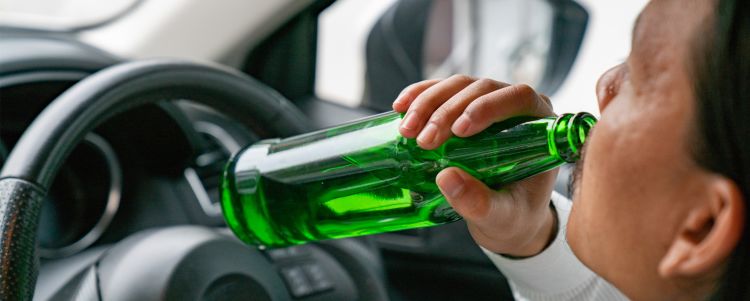DWI Defense Attorney in Houston, Texas
 Driving While Intoxicated / DWI
Driving While Intoxicated / DWI
Crimes involving the possession, trafficking, or creation of illegal drugs and narcotics are among the most serious offenses an individual can be charged with. In Texas, law enforcement officials and prosecutors are especially strict when it comes to drug crimes, and a conviction could lead to severe penalties. A conviction can also have devastating effects on an individual’s personal and professional opportunities.
DWI charges are serious and carry long-term negative consequences.
Charged With DWI? You Only Have 15 Days to Dispute Your Driver’s License Suspension
Choosing a DWI lawyer with the right experience is one of the most important decisions you will make in your case. Whether you have been accused of a crime or are simply being investigated, your rights and freedom are in jeopardy. It is important to have the counsel of an experienced criminal defense attorney who is well-versed in Texas DWI laws as early as possible. To discuss your DWI or criminal charges with an experienced DWI attorney in, call Ms. Walker to schedule a confidential consultation.
What is a DWI?
DWI is defined as the operation of a motor vehicle in a public place while intoxicated. You are deemed intoxicated if you do not have normal use of your mental and/or physical facilities because of alcohol and/or drugs in your body and/or if you have a blood alcohol concentration of at least 0.08 in Texas.
The definition of intoxication is typically the most contested issue in a DWI trial. Ms. Walker knows how to cross-examine the state’s witnesses and scrutinize the evidence on this technical issue. In addition to a breath or blood test, the officer will ask you to perform field sobriety tests. You have the right to refuse the breath and/or blood test and any field sobriety tests. You can be assured that the officer will have an in-car video recorder that will videotape you. Anything you do or say can be used against you in court. The field sobriety tests have not been found to be an accurate determination of intoxication. Many factors can cause a person to fail these standardized tests, which must be administered as stated in the National Highway Traffic and Safety Administration manual. Ms. Walker will scrutinize these procedures as performed in your arrest.
Other Serious Alcohol-Related Offenses Intoxication Assault
If a person commits an offense operating a motor vehicle in public while intoxicated and causes serious bodily injury to another, they may be charged with Intoxication assault. This can happen while operating aircraft, watercraft, or amusement park rides in addition to automobiles. Intoxication Assault is considered a third-degree felony, equivalent to an individual’s 3rd DWI offense.
Intoxication Manslaughter
Intoxication manslaughter occurs when a person under the influence operates a vehicle in a public place and causes the death of another by accident or mistake. This crime is considered a second-degree felony. Keep in mind that a vehicle can be considered a deadly weapon, which will disallow any chance of probation and escalate your charges.
DWI with a child passenger If a person is caught driving under the influence with a child under the age of 15 in the car, they may be charged with child endangerment as well as DWI. Child endangerment is punishable by a fine up to $10,000 up to two years in a state jail and loss of driver’s license for 180 days.
What Will Happen to My Driver’s License After a DWI Arrest?
If you fail a breath and/or blood test, your driver’s license may be suspended for 90 days. If you refuse to provide a breath and/or blood test, your driver’s license may be suspended for 180 days.
ALR Hearing
You have the right to contest a driver’s license suspension within 15 days of being arrested for a DWI. If you do so, you will keep your driver’s license while you await your ALR hearing date. At the hearing, a judge will determine if the police officer had reasonable suspicion to stop your vehicle and probable cause to make the arrest. If the judge finds in the state’s favor, your driver’s license will be suspended at that time according to the statutory requirements.
Occupational Driver’s License
If your driver’s license is suspended, you may be eligible for an occupational driver’s license, which seven days a week, for travel to work, school, and household duties; therefore, you will never fully lose the ability to drive! Requests for an occupational license must be made to the county or district court where the individual lives or to the court of original jurisdiction where the offense occurred.
Blood Alcohol Content (BAC) and How It Is Tested
A DWI occurs when a person drives with a blood alcohol concentration of .08 or more in their body in the state of Texas. If you are arrested, you will likely be subject to blood alcohol testing. This is done in a number of ways, from breath samples to blood and urine samples. For anyone under 200 lbs, may only take 3 or 4 drinks to push your BAC over the legal limit of .08. If you choose to drive after you’ve had a couple of drinks and are pulled over, it is possible that your BAC will be high enough for you to be charged with a DWI.
Urine testing is the least accurate and is not particularly convenient for officers and persons alike. Breath testing is the most convenient form of BAC testing but has been the topic of heated debate for quite some time. Because of a lack of reliability in breath analyzers, evidence gained through breath testing is likely to become useless in court. Blood testing is thought to be the most accurate means of BAC testing but is rather inconvenient for officers to obtain.
No Refusal Weekends in Houston Texas
There are certain times during the year where law enforcement may conduct No Refusal Weekends in order to crack down on drunk driving. No Refusal Weekends usually take place during holidays like New Years or 4th of July and require everyone pulled over for suspected drunk driving to undergo BAC testing. If the driver refuses, they may be subjected to a warrant for a blood sample test. Some areas like Texas have started to enforce No Refusal laws all the time.
Contact Walker Law Today!
For additional information about state and federal criminal laws, or to discuss your matter in confidence with an experienced, local criminal defense lawyer, schedule a confidential consultation now by calling us. If you prefer, visit our contact us page and fill out a short, confidential form and we’ll get back to you asap.
